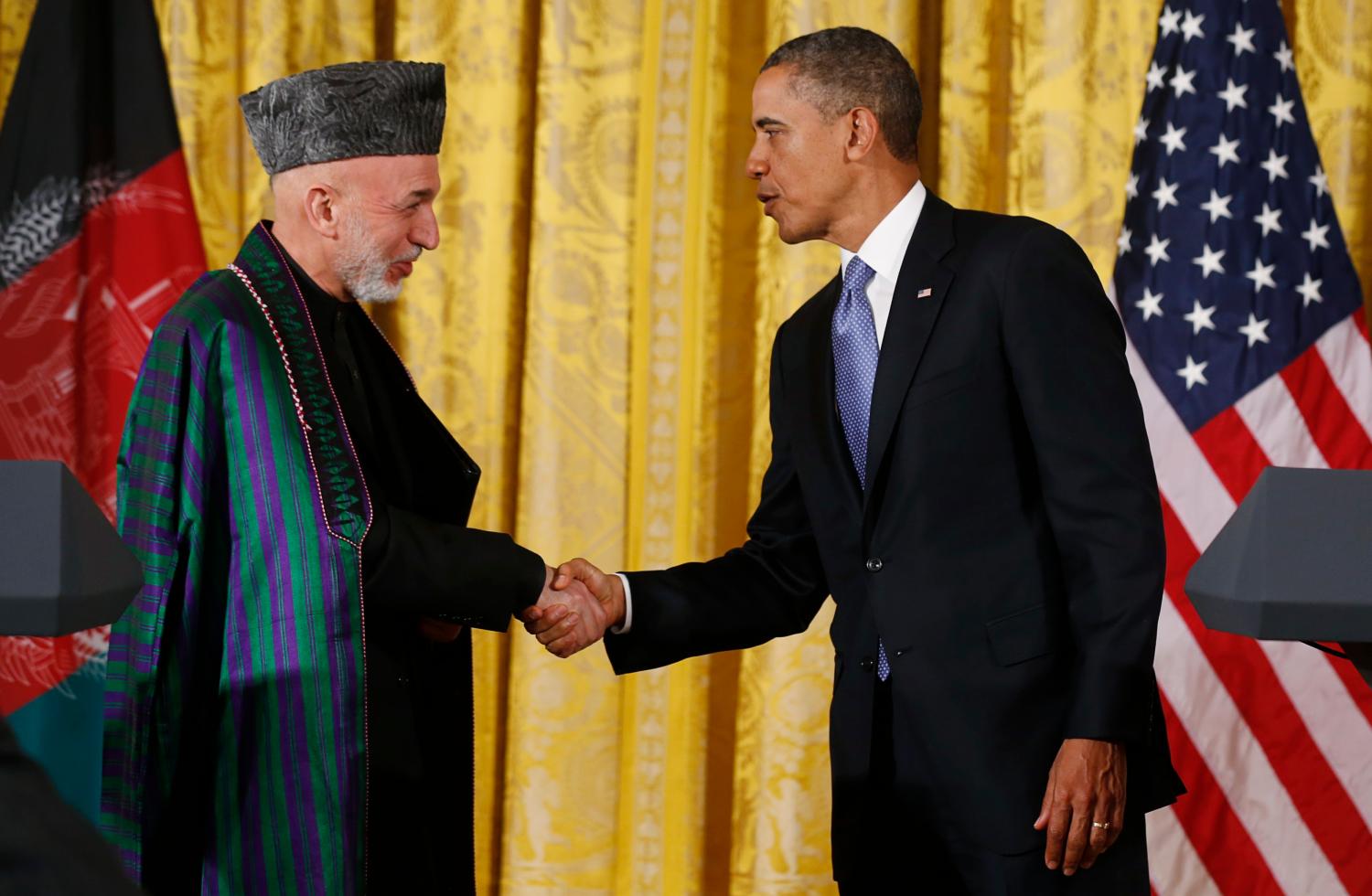Former ISAF commander General John Allen and Michael O’Hanlon call for patience and resoluteness in American policy towards Afghanistan in 2014 and beyond, writing that Washington should be willing to wait for a Bilateral Security Agreement with the Afghans until the spring, if necessary.
 |
MEMORANDUM TO: President Obama |
Summary and Recommendations
The United States should remain steady in its Afghanistan policy—despite all the challenges associated with doing so. In the crucial years ahead, a time of great transitions, we need to sustain an adequate American Enduring Force, as well as support for a robust Afghan army and police. President Hamid Karzai’s continual introduction of hurdles to the signing of a U.S.-Afghan Bilateral Security Agreement (BSA) is surmountable. Maintaining a U.S. troop presence after 2014 is critical to Afghanistan’s ability to build on the success that we have had in recent years. But the Afghanistan mission has become unpopular domestically; sustaining it will require resolve and an investment of your political capital.
The BSA is needed to provide the legal foundation for a sustained American, and thus NATO,
military presence in Afghanistan after the current International Security Assistance Force (ISAF) mission ends this December. We need to stay patient and wait Karzai out—signing the BSA, if need be, with his successor in late spring or even early- to mid-summer. The last increment of some 10,000 U.S. troops, what is currently envisioned as an Enduring Force after 2014, could, if necessary, always be redeployed back home in the latter half of this year if Karzai’s successor proves unwilling to sign. Such a change would not be trivial, but it would not be insuperable either.
The risks associated with this course are minimal. Moreover, nearly all the candidates for Afghanistan’s presidential election scheduled for April support the BSA, as well as a sustained international military presence after 2014. We believe that we will get the BSA that we need to maintain a U.S. and NATO presence.
Background
Karzai can be maddening to understand. He has the United States, leading a coalition of some 50 nations, willing to stay on and help his country succeed. And that after a war that has lasted a dozen years and cost the United States more than $600 billion and 2,000 fatalities. Yet the Afghan president keeps throwing up roadblocks.
His latest obstacle was his decision to hold off on signing the BSA on the grounds that his successor should have that prerogative later this year. Karzai has also thrown in new demands—just when we thought the security agreement was a done deal. For one, he wants to compel the United States to release all Afghan detainees in the prison camp at Guantánamo Bay.
Part of Karzai’s attitude can be explained by the umbrage he has taken at various Americans, especially in recent years. Some U.S. officials made mistakes in their handling of the complex Afghan leader, such as lecturing him in public about matters such as government corruption. There can be little doubt, though, that Karzai’s own peevishness and ingratitude have played a large role.
In addition, Karzai believes—somewhat accurately perhaps—that the BSA provides him with his last remaining leverage with Washington. He is wrong in thinking that Afghanistan remains a center of geopolitics, the location of a modern-day “great game” like the 19th-century competition in his country between Britain and Russia, or the 1980s Cold War struggle pitting the Soviet Union against the United States and others.
But Karzai is right that we are concerned enough about Afghanistan’s future to wish to maintain a presence even after NATO’s combat mission expires at the end of the year. He also rightly perceives that the United States wants to maintain a presence in Afghanistan in order to keep a vigilant eye on extremist groups in tribal regions of northwest Pakistan.
Against this backdrop, we need to stay patient. It would be a mistake to let the foibles of one man like Karzai—increasingly detached from Afghan public and political opinion—determine the future American role in South Asia. Even with Osama bin Laden dead, the stakes remain high: Extremist groups from al Qaeda to Lashkar-e-Taiba (the Pakistani group responsible for the 2008 Mumbai terror attack) could easily put down roots again in Afghanistan if the country were to fall to the Taliban after NATO’s departure.
Last November’s assembly of Afghan tribal elders, a loya jirga, again demonstrated what we already knew—that the Afghan people want a continued U.S. military presence. After the defeat of the Soviets in 1989, civil war, state collapse and Taliban victory followed. The Afghan people have seen this movie already; they do not want the sequel.The loya jirga thus urged Karzai to sign the agreement; he demurred.
The main candidates in Afghanistan’s presidential election also want us to stay. An October poll by the Moby Group in Kabul, Afghanistan’s largest private media organization, suggests the two leading contenders are former foreign minister Abdullah Abdullah and former finance minister Ashraf Ghani. Both are pro-Western, smart and competent. The same is true of Foreign Minister Zalmay Rassoul, said by some to be Karzai’s choice to succeed him after the elections scheduled for April. Other candidates also support a continuing American and international presence.
We thus can wait and tell Karzai that, if he wants to reinforce Afghan democracy by deferring the BSA signing to his successor, we can live with that. In the meantime, we should work with his ministers and others and plan on staying—precisely as if the accord were already in place—with several significant force concentrations in the country, complemented by other foreign troops.
Of course, the United States can make contingency plans. We would need a Plan B in any event. Even as we anticipate alternate scenarios, we can continue discussions with Karzai on the other “conditions” that he has introduced. But our aim should be to prepare for a late signature by Karzai’s successor.
Meanwhile, to support the April voting, the United States should temporarily deploy an election support task force of several thousand tailored troops, additional to current forces.
Conclusion
The United States has achieved much in Afghanistan. Girls can go to school, an affront to the Taliban; women are increasingly emerging as an important factor; and ethnic minorities are finding a place and their voice in a more modern, forward-looking country. The economy has progressed dramatically. The security forces are holding their own.
The United States has achieved this progress through a decade and more of war. We should not permit Karzai’s pique to flush this down the drain. We can ride this one out. In the end, this is about American security interests and the Afghan people, not about Hamid Karzai.
Read last year’s related Big Bets and Black Swans memo, “Chaos in Kabul” by Vanda Felbab-Brown »
The Brookings Institution is committed to quality, independence, and impact.
We are supported by a diverse array of funders. In line with our values and policies, each Brookings publication represents the sole views of its author(s).





